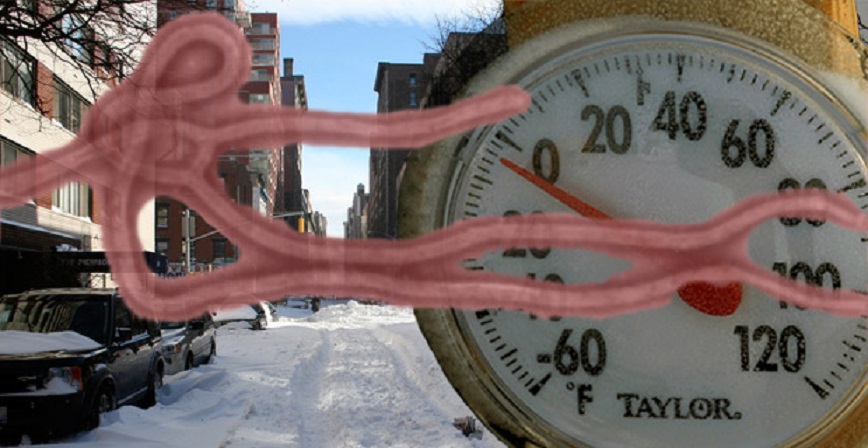[Author]Ebola can go airborne but hasn’t in West Africa because it’s too warm, researchers conclude
by Kit Daniels[/Author]
Ebola can spread by air in cold, dry weather common to the U.S. but not West Africa, presenting a “possible, serious threat” to the public, according to two studies by U.S. Army scientists.
After successfully exposing monkeys to airborne Ebola, which “caused a rapidly fatal disease in 4-5 days,” scientists with the U.S. Army Medical Research Institute of Infectious Diseases (USAMRIID) concluded Ebola can spread through air but likely hasn’t in Equatorial Africa because the region is too warm, with temperatures rarely dropping below 65°F.
“We… demonstrated aerosol transmission of Ebola virus at lower temperature and humidity than that normally present in sub-Saharan Africa,” the 1995 study entitled Lethal Experimental Infections of Rhesus Monkeys by Aerosolized Ebola Virus reported. “Ebola virus sensitivity to the high temperatures and humidity in the thatched, mud, and wattle huts shared by infected family members in southern Sudan and northern Zaire may have been a factor limiting aerosol transmission of Ebola virus in the African epidemics.”
“Both elevated temperature and relative humidity have been shown to reduce the aerosol stability of viruses.”
The study also referred to the 1989 Ebola outbreak at a primate quarantine facility in Reston, Va., in which the virus rapidly spread between unconnected rooms.
“While infections in adjacent cages may have occurred by droplet contact, infections in distant cages suggests aerosol transmission, as evidence of direct physical contact with an infected source could not be established,” the study added.
It is interesting to note this outbreak occurred in December 1989, when temperatures in Reston were usually below freezing, and it’s unlikely the indoor temperature in the vast quarantine facility was much higher.
A 2012 study also by the USAMRIID, which exposed monkeys to an airborne filovirus similar to Ebola, reached a similar conclusion to the 1995 study.
“There is no strong evidence of secondary transmission by the aerosol route in African filovirus outbreaks; however, aerosol transmission is thought to be possible and may occur in conditions of lower temperature and humidity which may not have been factors in outbreaks in warmer climates,” the study entitled A Characterization of Aerosolized Sudan Virus Infection in African Green Monkeys, Cynomologus Macaques and Rhesus Macaques stated.
The study pointed out that filoviruses, which include Ebola and the Sudan virus used in this particular study, have stability in aerosol form comparable to influenza.
“Filoviruses in aerosol form are therefore considered a possible, serious threat to the health and safety of the public,” it added.
And the Pentagon took this threat of airborne filoviruses so seriously that it organized a Filovirus Medical Countermeasures Workshop with the Department of Health and Human Services in 2013.
“The DoD seeks a trivalent filovirus vaccine that is effective against aerosol exposure and protective against filovirus disease for at least one year,” the executive summary of the workshop stated.
The Pentagon’s concern with airborne Ebola runs contrary to health officials who claim the disease can’t spread through coughing and sneezing, but according to the Army studies, that may only be true in tropical climates.
“How much airborne transmission will occur will be a function of how well Ebola induces coughing and sneezing in its victims in cold weather climates,” the web site potrblog.com suggested. “Coughing and nasal bleeding are both reported symptoms in Africa, so the worst should be expected.” infowars.com
In other Ebola’s news:
House testimony: sweat on bus surfaces can spread Ebola
HHS boss admits Ebola can survive in perspiration on inert surfaces
by Kurt Nimmo
Rep. Thomas Massie, a Republican from Kentucky, asked Rabih Torbay, the Vice President of International Operations for International Medical Corps., if somebody on a bus could catch Ebola from an infected passenger.
The exchange occurred on Friday during a House hearing on the federal government’s response to the disease. Massie also asked Health and Human Services Assistant Secretary Dr. Nicole Lurie about the transmissibility of Ebola.
Torbay said he is not a medical professional and tried to skirt the issue. Dr. Lurie said Ebola is present in perspiration but did not concede it may be spread on a bus. She also conceded that Ebola can live outside the body on inert surfaces.
Rep. Massie’s questions and the answers by Torbay, Lurie and Maj. Gen. James Lariviere indicate Ebola can be passed on in a bus or other public transport – for instance, the subway car used by a Doctors Without Borders physician hours before checking into a hospital where he was diagnosed with Ebola.
The question is, then: Is the government simply inept and incapable of handling a national health care issue, or are they hiding the truth from the American people for other, more nefarious reasons?
If Torbay and Lurie know Ebola can be passed on to others through sweat – and who in a crowded bus has not touched a pole or straphanger where sweat from an ill person may be present? – and they are hiding or avoiding telling people about the dangers, they should not only be fired, but brought up on charges of endangering public health. infowars.com



